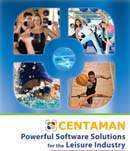Research from RMIT University highlights the impact of Victoria’s COVID-19 restrictions on arts workers, including creative and technical workers and the implications for their mental health.
The arts and creative sector is one of the industries most impacted by COVID-19 government restrictions. Galleries, museums, cinemas and concert halls have locked their doors, while multiple festivals have been cancelled. Work in this sector is extensively casualised; people often hold several casual or fixed-term contracts, and the COVID-19 restrictions has led to workers finding themselves with little or no income on very short notice. Jobs in the arts and creative sector have plummeted.
Research shows that the challenges brought on by the pandemic has flowed onto the mental health of those working in the arts and creative sectors.
Studying the impact of the arts shutdown on workers’ emotional and mental health are Dr Jacinthe Flore and Dr Natalie Hendry - Postdoctoral Research Fellows in the Social and Global Studies Centre, and the School of Media and Communication and Digital Ethnographic Research Centre, at RMIT University.
Findings from their anonymous survey - The C19 x ARTS x DIGITAL LABOUR study - show the pandemic has made unsteady work even more precarious for artists and workers.
The survey focuses on the experiences of performers, artists, writers, musicians, or similar creative or artistic roles across any genre with a particular interest in experiences of work interruptions; emotional and mental health impacts; using social and digital media to navigate emotional and mental health, seek other work (in or outside of the arts and creative sector) and find connections in isolation; and using social and digital media to continue performance work (for example, online performances and soliciting donations) and relationships with audiences.
Reviewing the survey responses, Dr Hendry - who researches how people experience mental ill-health in their families, and how social media influences health decisions and education - advises “some workers felt hopeless and were worried they’d lose their skill set or that the industry was changed forever.
“Many people in our study spoke about multiple jobs and short-term contracts or project-based work, with little financial or social security.
“But the pandemic challenges this ‘normal uncertainty’.
“With suddenly empty schedules and an interruption to seasonal work patterns, these arts workers have lost the structures and routines that provided rhythm – and mental stability – to their lives. This is on top of long-term funding challenges for the sector in Australia.
Dr Hendry adds “participants stressed that we can’t tease apart artists’ work, community, and mental health. They are all interrelated.
“This means that supporting this industry is complex. Opening up opportunities for more clinical mental health services doesn’t fit for all artists and workers.
“Workers talked about how they nurtured their wellbeing through their work and sense of self as an artist and their connections within their artistic communities.”
Dr Jacinthe Flore whose main areas of research include mental health and digital media, notes “going digital cannot solve all of the industry’s problems. Some performers and artists easily moved into working online or from home. But many participants said they were left out.
“Technical and administration workers are waiting for something to change – they can’t readily step into back-up work doing lighting jobs or sound work for events.
“The role of the creative arts is essential during a crisis like COVID-19. The arts can help recovery and lead creative, innovative and social ways of moving out of the pandemic.”
Dr Hendry and Dr Flore advise that “while statistics present data about the reduction or loss of work, there is a need for contextualised information about these workers’ experiences, particularly their emotional and mental health, during these unprecedented times.
“The data from this pilot study will help support advocacy initiatives by arts organisation as well as underpin potential policy submissions to the Victorian Government. We are also hoping that this is the beginning of larger project to capture the experiences of more arts and creative sector workers beyond Victoria.”
About the author
Karen Sweaney
Co-founder and Editor, Australasian Leisure Management
Artist, geoscientist and specialist writer on the leisure industry, Karen Sweaney is Editor and co-founder of Australasian Leisure Management.
Based in Sydney, Australia, her specific areas of interest include the arts, entertainment, the environment, fitness, tourism and wellness.
She has degrees in Fine Arts from the University of Sydney and Geological Oceanography from UNSW.
Read more from this author
Related Articles
7th October 2020 - Victorian Government delivers $7.85 million to support arts and cultural organisations
20th September 2020 - Live music venues to benefit industry from $13 million Victorian Government support package
11th September 2020 - Victorian Government plans look at venues reopening from 26th October
21st August 2020 - Financial impact of Coronavirus leaves Victorian families unable to afford healthy food
7th August 2020 - Federal Government adds $15 billion to JobKeeper scheme to aid Victorian businesses
2nd August 2020 - Activities halted and facilities closed as Victorian Government introduces Stage four Coronavirus lockdown in Melbourne
10th August 2020 - Live Performance Australia releases comprehensive COVIDSafe guidelines
7th August 2020 - Live Performance Australia commends Western Australian Government for shared risk funding
25th June 2020 - Arts and entertainment funding package welcomed by Live performance industry
4th June 2020 - Live Performance Australia’s $345 million plan to restart and rebuild the entertainment industry
4th April 2020 - LPA believes funding still not enough to prevent decimation of live performance industry
23rd March 2020 - LPA seeks targeted financial stimulus for live performance industry
17th March 2020 - LPA calls for $850 million live performance support and stimulus package
13th March 2020 - Live Performance Australia calls for urgent government action to protect $2.5 billion industry
11th March 2020 - Live Performance Australia release Coronavirus statement
11th October 2018 - Arts Centre Melbourne marks World Mental Health Day with Arts Wellbeing Collective launch
9th August 2018 - Study shows regular exercise improves mental health
16th April 2020 - ABS survey shows ‘arts and recreation’ businesses as being hardest hit by Coronavirus pandemic
21st May 2020 - Jobs in the arts and hospitality could take five years to recover to pre-Coronavirus levels
26th February 2018 - Draft Entertainment Industry Code of Practice to prevent workplace discrimination and harassment
8th January 2018 - MEAA looks to protect theatre workers from sexual harassment
17th December 2017 - Australian Major Performing Arts Group condemns harassment and bullying
Support our industry news service
We hope that you value the news that we publish so while you're here can we ask for your support?
As an independent publisher, we need reader support for our industry news gathering so ask that - if you don't already do so - you back us by subscribing to the printed Australasian Leisure Management magazine and/or our online news.















